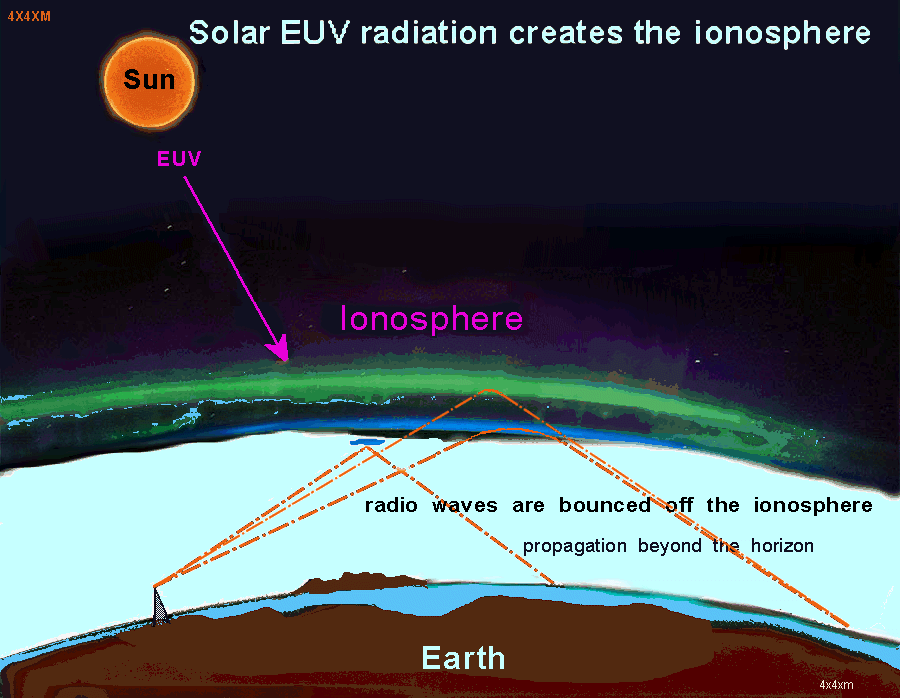
 What factors influence HF Radio Propagation?
What factors influence HF Radio Propagation?
Solar activity drives HF propagation by electrically "exciting" the ionosphere that refracts radio waves thus enabling propagation beyond the horizon.
Several factors affects HF communication, including:
- Solar Activity: The sun's activity can affect the ionosphere and the amount of ionization, which can influence the refraction of HF radio waves.
- Time of day: The ionosphere is more ionized during the day due to solar radiation, which means that HF radio waves are more likely to be bpunced back to Earth at certain frequencies. At night, the ionosphere becomes less ionized, and the frequencies that are refracted back to Earth shift to lower frequencies.
- Season: The ionosphere's ionization levels can vary depending on the season, which can affect the frequencies that are returned back to Earth.
- Geographical location: The angle at which HF radio waves approach the ionosphere can affect how they are refracted back to Earth, and the distance they travel.
- Weather conditions: Tropospheric, ionospheric and space weather can affect HF radio propagation by causing the ionosphere to change, or by affecting the signal as it passes through the atmosphere.
- Geomagnetic storms: These storms, which are drived by space weather, can cause disruptions in HF radio communication by changing the ionosphere's properties.
- Operating Band: The frequency of the HF radio signal itself can also affect its propagation, as different frequencies may be refracted or absorbed by the ionosphere in different ways.
Read a Summary of the theoretical topics of HF radio propagation. See also an index of terms for HF Radio propagation.
The project "Understanding HF Propagation," focuses on skywave propagation,
shows near-real-time indices and explains what the terms mean.
shows near-real-time indices and explains what the terms mean.
